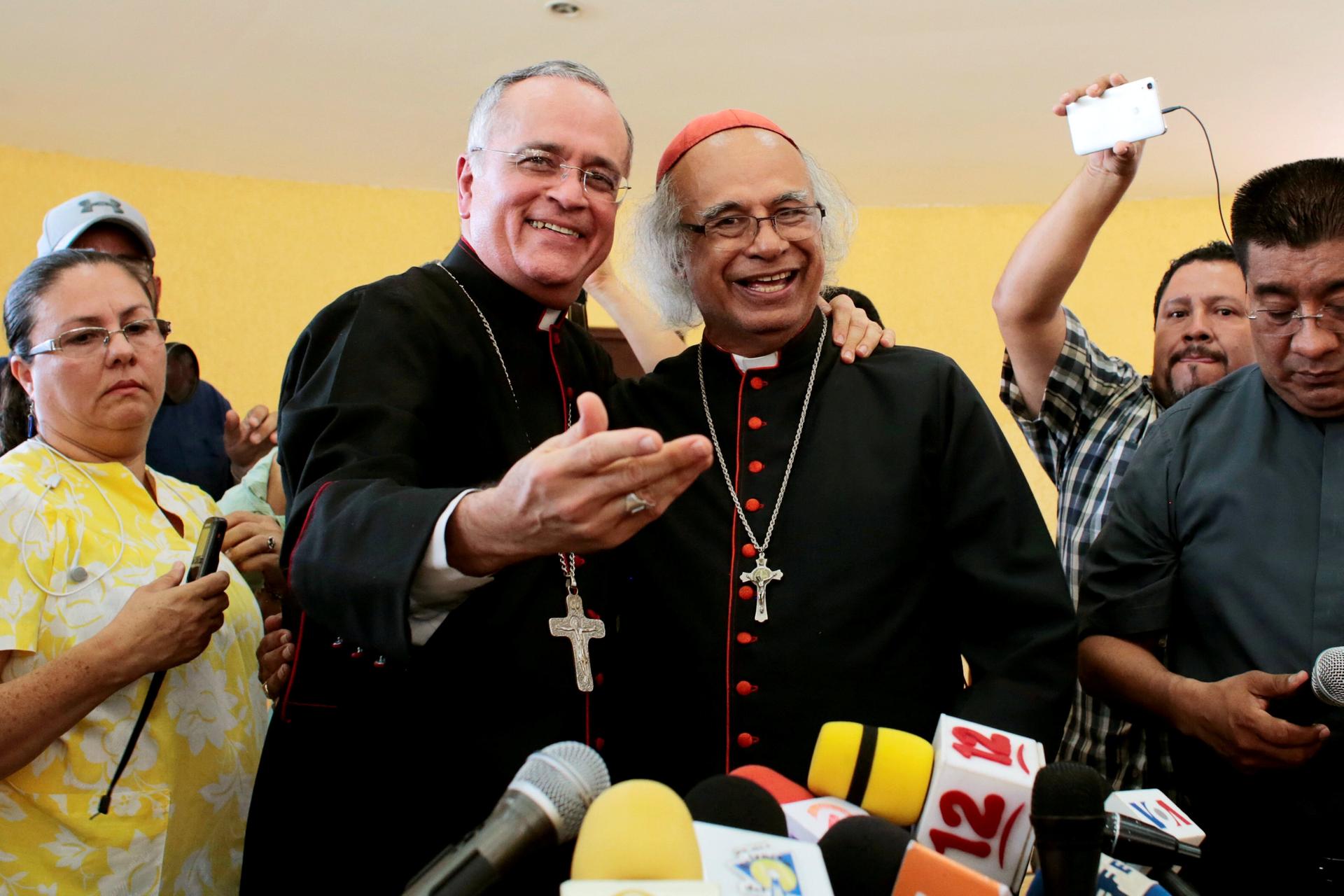ROME – Nicaraguan Bishop Jose Baez, the auxiliary bishop of Managua who has been living in exile in Miami since 2020, said on Sunday that “when someone repents and chooses to change, they must be supported with affection.”
Baez on Sunday called for the church not to reject nor “lightly judge” state workers, both within and outside of Nicaragua, who decide to denounce and leave the power structure of what he has described as a dictatorship.
He was speaking during a homily about the parable of the prodigal son, which tells the story of the repentance of a son who abandoned his father but later returns asking for forgiveness.
The prelate highlighted similarities between the prodigal son and Arturo McFields Yescas, former ambassador of Nicaragua to the Permanent Council of the Organization of American States (OAS), who accused the government of Daniel Ortega of violating human rights in Nicaragua. On Thursday, the former ambassador also spoke about the vulnerable situation of the more than 170 political prisoners who are facing health crises.
McFields, who has held his post since November 2021, said he was speaking up on behalf of Nicaragua’s political prisoners and those killed since anti-government protests broke out in the Central American nation in 2018.
During his remarks, published by OAS on Twitter, the ambassador said that “denouncing the dictatorship in my country is not easy, but to continue remaining silent and defending the indefensible, is impossible.”
“I have to speak out, even though I’m afraid. I have to speak out even though my future and that of my family is uncertain,” he added.
He also denounced the lack of freedom of speech in Nicaragua and said that the elections which secured Ortega’s fourth consecutive term in office were “not credible.”
McFields closed his remarks by telling the OAS that people inside and outside of the government are “tired of the dictatorship and its actions.”
Shortly after his speech, the Nicaraguan foreign ministry issued a statement saying that “Mr Arturo McFields does not represent us and therefore none of his remarks are valid.”
Baez, on the other hand, stood by the ambassador.
“Sometimes we are very hard on those who, after living wrongly, decide to channel their lives on the paths of good and justice,” the bishop said. “We fail to forgive. The parable invites us to broaden the horizon of our heart to the measure of the father’s mercy. When someone repents and decides to change, we must support him with affection. When someone who has made a mistake, recognizes his sins and rectifies them, he always feels ashamed and needs our closeness and our understanding,” the bishop said during the Mass at Miami’s St. Agatha’s Church.
“Let us not remain indifferent to these brothers, nor let us be rigid of heart thinking that there are people who are not worthy of receiving God’s embrace and forgiveness,” he added.
“In our society there may be people who, for whatever reason, have collaborated with the dominant unjust system, but who one day come to their senses and decide to change,” the bishop said. “It is not easy for them. They are afraid of the reprisals of the regime and the incomprehension of society. Their decision must be appreciated.”
The religious leader recalled that many officials complicit in the Ortega regime “decide to leave the ideological prison in which they have lived, free themselves from the humiliation to which they have been subjected, denounce injustice and place themselves on the right side of history.”
“Let us support these brothers and sisters. Let us not ask: Why didn’t he do it before, is he sincere, does he deserve to be embraced? Let us not dwell on the past mistakes of others, let us not keep pointing fingers at the bad things they have done. Let us tune in with God’s heart and offer these people understanding, support and forgiveness,” he continued.
Baez also recalled that “the house of the father in the parable is the world, it is our society. We are called to rejoice to be able to live all together in the great father’s house, the house of love and life. May the image of God that Jesus wanted to reveal to us remain engraved in our hearts forever. God is a scandalously good and merciful father, for whom there are neither pure nor impure, near and far, good and bad.”
“God is a father who welcomes us all and forgives us, makes feast for us, and helps us all to get up if we allow ourselves to be embraced by him,” the bishop said.
Follow Inés San Martín on Twitter: @inesanma














